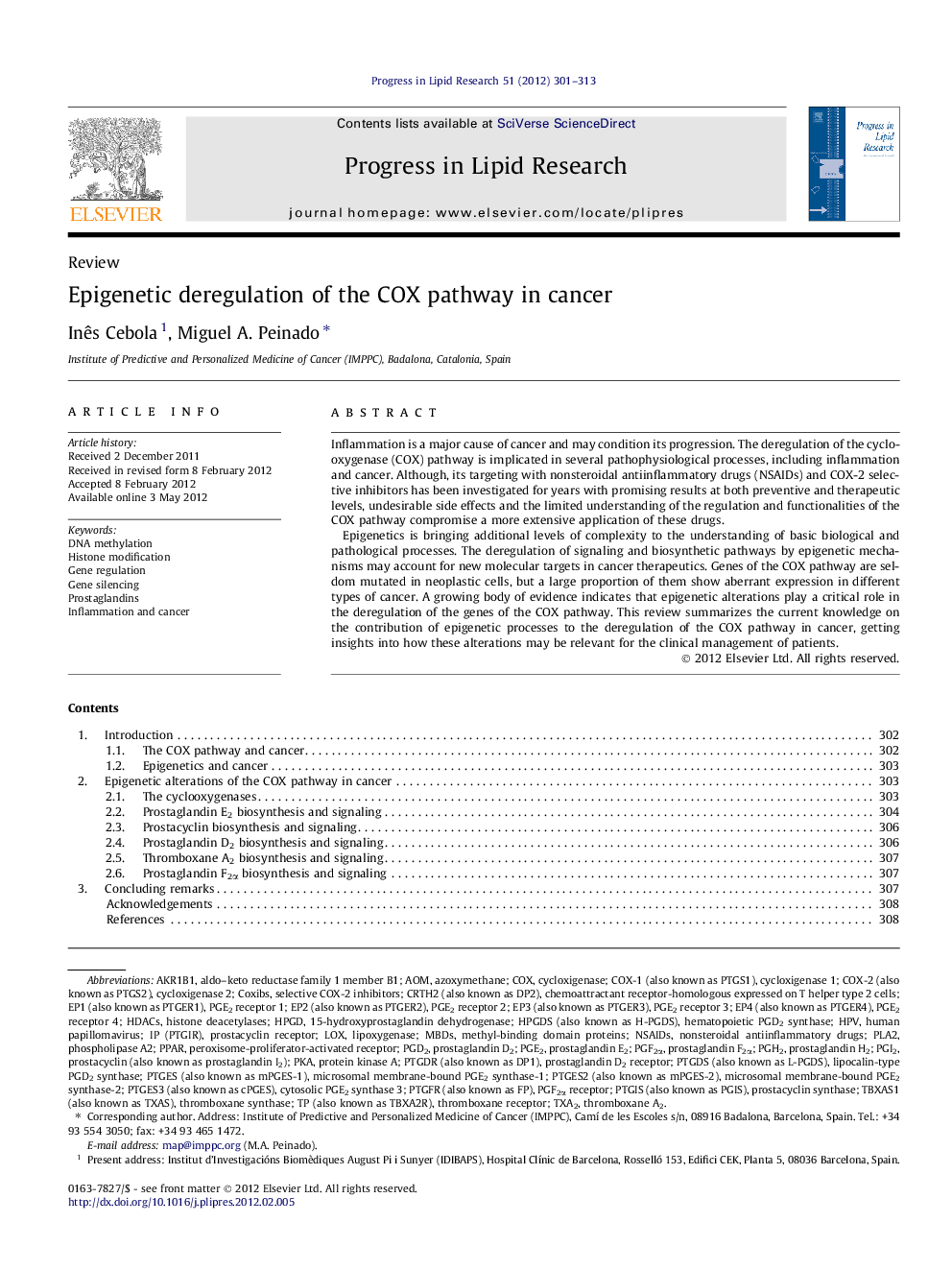| Article ID | Journal | Published Year | Pages | File Type |
|---|---|---|---|---|
| 2019146 | Progress in Lipid Research | 2012 | 13 Pages |
Abstract
Epigenetics is bringing additional levels of complexity to the understanding of basic biological and pathological processes. The deregulation of signaling and biosynthetic pathways by epigenetic mechanisms may account for new molecular targets in cancer therapeutics. Genes of the COX pathway are seldom mutated in neoplastic cells, but a large proportion of them show aberrant expression in different types of cancer. A growing body of evidence indicates that epigenetic alterations play a critical role in the deregulation of the genes of the COX pathway. This review summarizes the current knowledge on the contribution of epigenetic processes to the deregulation of the COX pathway in cancer, getting insights into how these alterations may be relevant for the clinical management of patients.
Keywords
PGI2PLA2NSAIDSTxA2azoxymethanepKaPPARProstaglandin D2 receptorPGE2PGF2αMBDSAOMPGD2AKR1B1HPGDPGH2HDACsCOX15-hydroxyprostaglandin dehydrogenasephospholipase A2Histone modificationLOXSelective COX-2 inhibitorsThromboxane A2thromboxane synthaseGene regulationGene silencingnonsteroidal antiinflammatory drugsProstacyclin synthaselipoxygenaseDNA methylationhistone deacetylasesHuman papillomavirusHPVprotein kinase AProstaglandin D2Prostaglandin E2Prostaglandin F2αProstaglandin H2ProstaglandinsCoxibsthromboxane receptorPeroxisome-proliferator-activated receptorProstacyclin receptor
Related Topics
Life Sciences
Agricultural and Biological Sciences
Food Science
Authors
Inês Cebola, Miguel A. Peinado,
